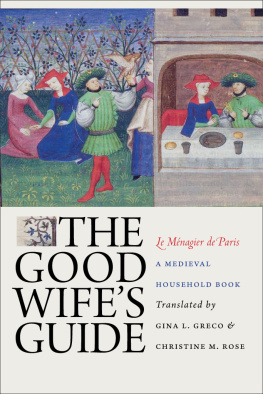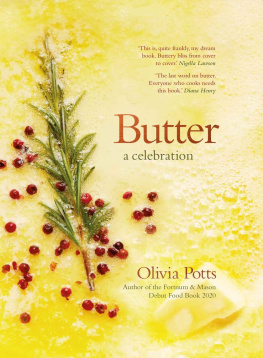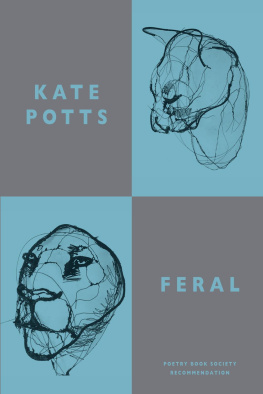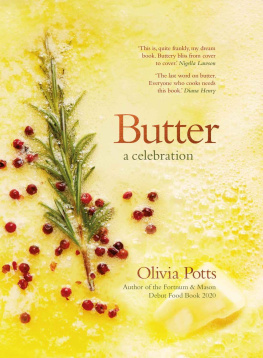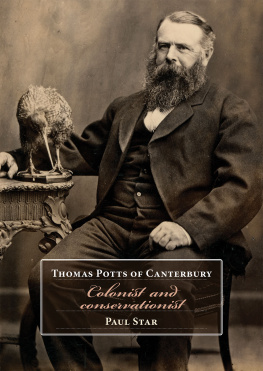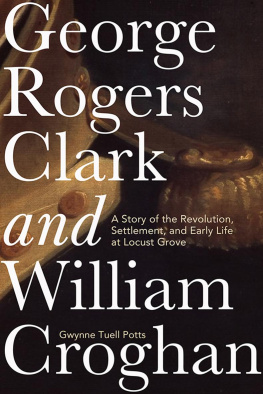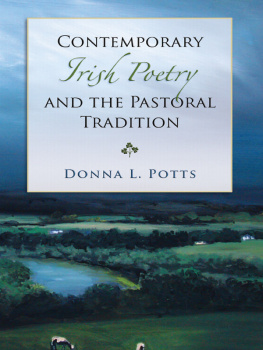Potts - The Good Wife’s Guide
Here you can read online Potts - The Good Wife’s Guide full text of the book (entire story) in english for free. Download pdf and epub, get meaning, cover and reviews about this ebook. publisher: Cornell University Press, genre: Home and family. Description of the work, (preface) as well as reviews are available. Best literature library LitArk.com created for fans of good reading and offers a wide selection of genres:
Romance novel
Science fiction
Adventure
Detective
Science
History
Home and family
Prose
Art
Politics
Computer
Non-fiction
Religion
Business
Children
Humor
Choose a favorite category and find really read worthwhile books. Enjoy immersion in the world of imagination, feel the emotions of the characters or learn something new for yourself, make an fascinating discovery.
- Book:The Good Wife’s Guide
- Author:
- Publisher:Cornell University Press
- Genre:
- Rating:3 / 5
- Favourites:Add to favourites
- Your mark:
- 60
- 1
- 2
- 3
- 4
- 5
The Good Wife’s Guide: summary, description and annotation
We offer to read an annotation, description, summary or preface (depends on what the author of the book "The Good Wife’s Guide" wrote himself). If you haven't found the necessary information about the book — write in the comments, we will try to find it.
The Good Wife’s Guide — read online for free the complete book (whole text) full work
Below is the text of the book, divided by pages. System saving the place of the last page read, allows you to conveniently read the book "The Good Wife’s Guide" online for free, without having to search again every time where you left off. Put a bookmark, and you can go to the page where you finished reading at any time.
Font size:
Interval:
Bookmark:
The bulk of article 1.9 consists of the tale of the mollification of vengeful Melibee by his wife, Prudence, to which we have referred in the introduction. As he recounts the tale of this model wife, just as with the story of Griselda, the narrator provides the reader with the interpretation he wishes her to give the tale. The lesson here, he says, resides in learning the importance of selflessly and unobtrusively swaying a foolish and furious husband from his follies through wisdom, discretion, caution, and gentleness, and not by attempts at mastery, scolding, complaining to the neighbors, or other actions taken in irritation. Husbands, he says, resent a womans dominance and may be placated and corrected only through indirection. The wife, in this case the admirable Prudence, must not show her indignation or acknowledge her injuries, but only self-effacingly, gently, and persistently counsel the husband away from his misdeeds. As with Griselda and other wives he praises, the narrator upholds Prudences concealment of her own private pain for the higher aim of bringing her husband around to goodness. Since every man wants to rule as a lord in his home, the narrator demonstrates that the prudent wife must subdue her anger or grief in order to reform her husbands foolish and dangerous impulses which would destroy the peace of that home. Here again, we have a tyrant presented as so unself-aware and egocentric as to need backstage manipulation and coddling by his wife.
The text of Prudences advice subduing Melibees rage at his enemies attack upon his home, wife, and daughter is a tissue of proverbs, biblical quotations, and classical sententiae that she organizes as evidence in her campaign to pacify his vengeance. The biblical quotations are familiar, especially the words of Solomon and the Psalms, and accompany material from Cicero, Seneca, Ovid, Catos Distiches , the Church Fathers, and other philosophers, legal experts, and theologiansall incorporated into the dialogue between Prudence and Melibee. Many of these sayings are misattributed in the Latin source, the Liber consolationis et consilii by Albertanus of Brescia (for example, material said to be from Seneca is often actually from Publius Syriass work), and these misidentifications have been carried over to Renaud de Louenss French version and copied from that text into the Le Mnagier manual by the author-compiler. The point, of course, in this conduct manual is not for the young wife or any reader to have accurately identified Readings provided by Pichon, from either the other MSS or the sources that clarify the text, are in brackets.
See also Askins, Tale of Melibee , where he has provided further annotations for many of the quotations used by Prudence and Melibee. Askins used Paris BN MS fr. 578 as his base text and has also consulted Renaud de Louenss Latin source, Albertanus of Brescias Liber consolationis et consilii , ed. Thor Sundby (London: N. Trbner and Co. for the Chaucer Society, 1873). MS 578 is not the source text for the story in Le Mnagier . Other explanatory notes on the French version are in J. Burke Severss section on Chaucers Melibee in Sources and Analogues of Chaucers Canterbury Tales , ed. W. F. Bryan and Germaine Dempster (New York: Humanities Press, 1958), 560614.
An allegorical dream-vision poem of 2,626 verses in French octosyllabic couplets constitutes nearly all of article 2.1. Le Chemin de povret et de richesse, called in some MSS La Voie de povret ou de richesse, or Le Livre du chastel de labour, possibly composed by Jacques Bruyant in 1342, depicts a newlywed manhe calls himself a nouvel mesnagierexperiencing the first trials of marriage.as Want, Necessity, Penury, and Scarcity appear and physically assail him. Reason then intervenes to instruct him how to drive these troubles away through morality, and educates him about the vices and virtues. The dreamer finally gets directions to the Castle of Riches, via Diligence and Perseverance, and avoids Sloth. On his way, he finds the Castle of Labor where he joins the workers there for a long day of toil. Upon his return homewithout having reached the Castle of Richeshis down-to-earth wife disbelieves his outlandish story of these travels, charging him with madness. Later, before going to bed again, he prays that if he is not to be allowed to attain riches, he may at least have sufficient for his needs.
One can certainly appreciate the similarities between the instructional materials that have gone before, such as in article 1.3 on the Seven Deadly Sins and the Virtues, and this poetic sermon on the merits of hard work for a wedded man and how to avoid vice. Still, this poem is ostensibly about a mans virtue rather than a womanswhich is the focus of much of the other parts of the volumeso it may act as a kind of bookend or diptych with its counterpart in section 1.3 to show the young wife that a virtuous man is a hard worker, and that seeking riches can be morally acceptable, as long as one does it through diligent labor. The vices and virtues, described in lengthy sermonizing detail in section 1, are here dramatically marshaled for further heuristic aims, so that the reader will visualize them as attacking the soul, with life lived as a struggle against these daily assaults. And perhaps too this poem is included to demonstrate to that next husband what is expected of him. In fact, this poem represents a version of a conduct book for secular working men within the larger context of this womans manual. We find also in the Chemin poem allegorical figures lecturing on deliberation before acting and using reason and moderation as a guide for living, such as appear in the story of Melibee in article 1.9. A portion of the poem dramatizes Lady Reasons advice to servants to be faithful, willing, obliging, and never insolent, and she advocates the service of Love over the service of Fear for both masters and retainers, as is reiterated in article 2.3. In this way the themes of the rest of the book are carried out poetically and recapitulated in this article before the narrator turns to his more practical advice on horses, hawking, gardening, and cooking.
Toward its conclusion, this poem offers an antifeminist diatribe about the impossibility of pleasing wives, a kind of corrective to or gloss on the earlier treatises in section 1 concerning the outrageous demands of husbands for wifely obedience, although this speech is couched in somewhat sheepish language by the nouvel mesnagier, who seems grudgingly to enjoy his married state. All in all, this poem significantly and charmingly adds to the discussion in the book regarding the moral life and touches on the complex negotiation that was the medieval marriage, or any marriage for that matter. The man in the poem never reaches the Castle of Riches, but the Mnagier narrator may have other plans for his own life. Earlier, in his prologue, the narrator counsels his wife to act prudently so that they will reach such a castle: The first article instructs that you take care of your household, with diligence, perseverance, and regard for your work. Take pains to find pleasure in your duties, and I will do the same so that we will reach the castle that is spoken of. It hardly seems that he could be referring to the Castle of Labor that the man in the poem has arrived at (and must settle for), since the pains he undergoes in the Castle of Labor are ostensibly a prelude to being welcomed to the Castle of Riches.
In his introductory remarks to this article and the Chemin poem, the narrator worries aloud about boring his wife-pupil with his advice and verbose instructions, but he concludes he has not burdened her too badly after all and resolves to include this lengthy poem in his book for her. He informs his wife how much he admires this poem and how he is loath to change, excerpt, or abbreviate it in any way, so he incorporates it wholesale into his compendium for her education and, one hopes, for her entertainment. It is significant for the understanding of the taste of such medieval bourgeois householderswhat they read and considered important to preservethat, indeed, the wife was expected to read and understand poetry.
Next pageFont size:
Interval:
Bookmark:
Similar books «The Good Wife’s Guide»
Look at similar books to The Good Wife’s Guide. We have selected literature similar in name and meaning in the hope of providing readers with more options to find new, interesting, not yet read works.
Discussion, reviews of the book The Good Wife’s Guide and just readers' own opinions. Leave your comments, write what you think about the work, its meaning or the main characters. Specify what exactly you liked and what you didn't like, and why you think so.

